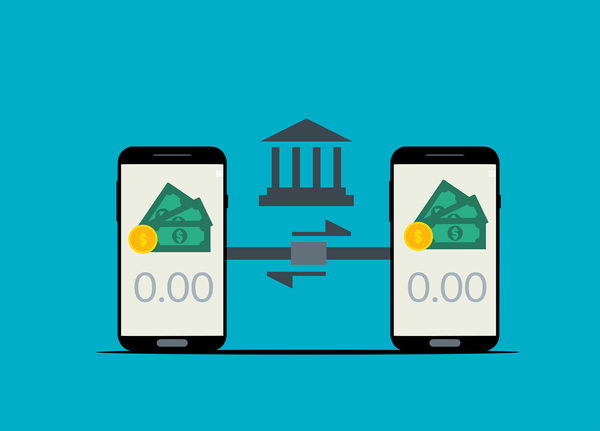Venmo Business Account Scams: What You Need to Know and How to Stay Safe

If you're already using Venmo for personal transactions, setting up a business profile can help you better organize your business payments. It also opens up additional features, like tracking transactions and receiving tips, which can make managing your business smoother.
However, as a business owner, safeguarding your funds is only part of the equation—you also need to protect your account and reputation from scammers. To do this effectively, the first step is to recognize common scam tactics and avoid them.
What Is a Venmo Business Account?
A Venmo business account allows you to receive payments easily from customers, whether you are an individual entrepreneur, a store owner, or a registered business. It provides tools for more effective payment management and offers additional features designed specifically for business needs.
Key Features of Venmo Business Profiles:
· Tipping:
Customers can show their appreciation by tipping your business. This feature can be toggled on or off in the "Settings" menu. To track tips, you can download account statements directly from your browser.
· QR Code Payments and Sharing:
Venmo simplifies payments with QR codes. You can access your unique QR code by tapping the "Scan" button and navigating to "My Code." Share your code effortlessly via text, email, print, and more.
· Balance Transfers:
Need to move funds between your personal and business accounts? Venmo allows balance transfers once your identity is verified. Transfers can be initiated from the main menu by selecting "Transfer Balance." While there are no set limits, transfers require approval from Venmo.
· Refunds:
To refund a customer, create a new payment and label it as a refund. Make sure to include the original transaction fee in the total amount refunded to ensure the customer receives the complete amount.
· Transaction History:
Venmo's transaction history feature helps you keep track of your financial activity with Venmo's transaction history feature. Both business and personal profiles allow you to view and download transaction records, simplifying bookkeeping and financial reviews.
Venmo Business Account vs. Personal Account
While personal accounts are ideal for peer-to-peer transactions—like splitting a dinner bill or sharing household expenses—a Venmo business account takes things to the next level by offering features specifically tailored for businesses.
Related: 7 Types of Credit Card Fraud & How Your Businesses Can Avoid Them
Advantages of a Venmo Business Account:
- Increased Visibility: Boost your business's presence on Venmo's platform.
- Referrals: Tap into Venmo's social sharing features to generate word-of-mouth recommendations.
- Links to Your Website and Social Media: Drive traffic directly to your digital platforms.
- Tax Documentation: Access formal tax reports that meet federal and state reporting thresholds.
- Bookkeeping Tools: Simplify financial management with transaction tracking.
- Customer Insights: Gain valuable data about your customers' purchasing habits.
Related: Quickbooks for Small Business. How to Secure Your Account
Common Venmo Business Account Scams and How to Avoid Them
Scammers use various tactics to target Venmo business accounts, aiming to exploit businesses and their customers. Here are five common scams to watch out for, along with tips to protect your business.
- Fake Payment Invoice Scam
In this scam, fraudsters pretend to be genuine customers and send fake payment confirmations or invoices. They may claim that Venmo is "holding" their payment until they receive an item or service—a tactic Venmo does not support. This scam is designed to trick you into providing goods or services for free.
Another variation involves stolen credit cards. Scammers deposit stolen funds into your account and claim the payment was a mistake. When the real cardholder reports fraud, the credit card company issues a chargeback. As a result, you're liable to return the funds twice—once to the scammer and again to the rightful owner—along with any chargeback fees.
Other fraudulent tactics include counterfeit proof-of-payment screenshots or emails that mimic official Venmo notifications. These messages often pressure you to ship an item and provide tracking details before the funds are received, which never appear.
What to Do:
- Always verify payments in your Venmo account before delivering goods or services.
- Be cautious of unsolicited messages about "accidental payments."
- Avoid clicking links or acting on suspicious emails claiming to be from Venmo.
Related: What Are Invoice Scams and How Small Business Can Stay Safe
2. Overpayment Scam
In an overpayment scam, a "customer" intentionally pays more than the item's price and asks you to refund the difference. The initial payment is often made with a stolen credit card. Once the cardholder disputes the charge, you lose the refunded amount, the product, and any associated fees.
What to do:
- Never process refunds for overpayments without verifying the original payment.
- Contact Venmo support directly if you suspect fraudulent activity.
3. Account Suspension or Verification Scam
Fraudsters pose as Venmo customer support representatives, claiming there's an issue with your account. They may urge you to "verify" personal or business details, such as passwords, credit card numbers, or bank account information. Or the message contains a link to "recover" your account, which leads to a phishing website that steals sensitive information like login credentials or financial details, giving scammers full access to your funds.
What to do:
- Never share sensitive information with unsolicited contacts.
- Verify messages by contacting Venmo support through official channels.
- Be skeptical of urgent warnings designed to pressure you into action.
Related: How Scammers Trick You into Compromising Your Own Security
4. Business Impersonation Scam
Scammers may create fake Venmo accounts impersonating legitimate businesses. Using your business name, logo, and details, they deceive customers into making payments for products or services that are never delivered. This not only defrauds your customers but also harms your business's reputation.
What to do:
- Regularly search for fake accounts mimicking your business.
- Report impersonation to Venmo immediately.
- Educate your customers about your official payment methods and accounts.
How to Protect Your Business Against Venmo Scams
Here's how you can protect your Venmo business account and minimize your exposure to fraud.
- Secure Your Venmo Account
Start by ensuring your Venmo business account is protected with a strong password and Two-Factor Authentication (2FA).
· Use a Strong Password:
Create a unique password with at least 16 characters, incorporating uppercase and lowercase letters, numbers, and symbols. Avoid reusing passwords or using easily guessable details like names or birthdays.
· Enable Two-Factor Authentication (2FA):
Add an extra layer of security by activating 2FA, which requires both your password and an additional verification method (like a PIN, fingerprint, or facial scan). On Venmo, enable 2FA by navigating to Settings and selecting Face ID & PIN. Even if your password is compromised, your account remains secure.
2. Verify All Transactions
Never rely solely on emails or payment screenshots to confirm payments. Always check your Venmo account to verify that the payment has been successfully processed before shipping goods, providing services, or issuing refunds. Download your transaction history from Venmo's website for accurate records and additional verification.
3. Be Wary of Suspicious Links
Fraudsters often use phishing emails or texts to trick you into clicking on malicious links. To avoid falling victim:
- Hover over links to preview their URLs before clicking.
- Use tools like Bitdefender Link Checker to verify a link's legitimacy.
- Never click on links in unsolicited messages, even if they appear to come from Venmo.
4. Avoid Sending Refunds for Overpayments
If a customer claims they overpaid and asks for a refund, hold off. This is a common scam tactic. Instead:
- Keep the funds until the situation is verified.
- Suggest the customer contact their bank to resolve the issue.
- This approach ensures you're not refunding money you never legitimately received.
5. Report Suspicious Activity Immediately
If you notice anything unusual, such as questionable messages or unauthorized transactions, contact Venmo support right away. You can reach them by:
- Calling (855) 812-4430.
- Chatting with a support agent.
- Submitting a support form on Venmo's website.
Taking quick action can help prevent further issues and protect your account from potential losses.
6. Strengthen Your Defenses with Bitdefender Ultimate Small Business Security
It offers comprehensive protection against malware, phishing attempts, identity theft and account takeover scams.
For added protection, use Bitdefender Scam Copilot, an AI-powered tool that analyzes suspicious messages and transactions in real time, helping you identify scams before they cause damage. With these tools, your business is shielded from cyber threats, giving you peace of mind while you focus on growth.
Check out the plans here.
FAQs
What Happens if You're Hit by a Venmo Business Account Scam?
Take immediate action to minimize the damage and protect your accounts. Here's what to do:
- Secure Your Accounts:
- Change passwords for your Venmo account, bank accounts, and any other related online accounts. Use strong, unique passwords to prevent further access.
- Report the Scam:
- Notify Venmo about the fraudulent activity.
- File an official report with your local police department.
- Alert Authorities:
- Report the scam to the Federal Trade Commission (FTC).
- If the scam involves a registered business, you can also file a complaint with the Better Business Bureau (BBB) to help prevent similar scams in the future.
- Address Identity Theft (if applicable):
- If the scam involves identity theft, visit the FTC's Identity Theft Recovery Portal to start a recovery plan. While the process may take time, identity theft can be resolved.
Will Venmo Refund My Money After a Scam?
Venmo typically does not issue refunds for scams. However, you can:
- Send a Charge Request: Ask the recipient to return the money.
- Cancel Pending Payments: If the payment hasn't been processed yet.
- Contact Venmo Support: Although Venmo will investigate, refunds are not guaranteed.
Is Venmo Safe for a Small Business?
Venmo is generally safe for businesses. It uses standard encryption protocols to secure your data, monitor your account, and detect suspicious activity. Look for the "https" in the URL, which signifies SSL encryption.
However, because it lacks comprehensive fraud protection, small business owners should stay vigilant, follow security best practices, and consider using additional tools like Bitdefender Ultimate Small Business Security to safeguard accounts and prevent scams.
tags
Author
Cristina Popov is a Denmark-based content creator and small business owner who has been writing for Bitdefender since 2017, making cybersecurity feel more human and less overwhelming.
View all postsRight now Top posts
How Do You Manage Your Passwords? We Ask Netizens
December 18, 2025
Cybercriminals Use Fake Leonardo DiCaprio Film Torrent to Spread Agent Tesla Malware
December 11, 2025
FOLLOW US ON SOCIAL MEDIA
You might also like
Bookmarks









